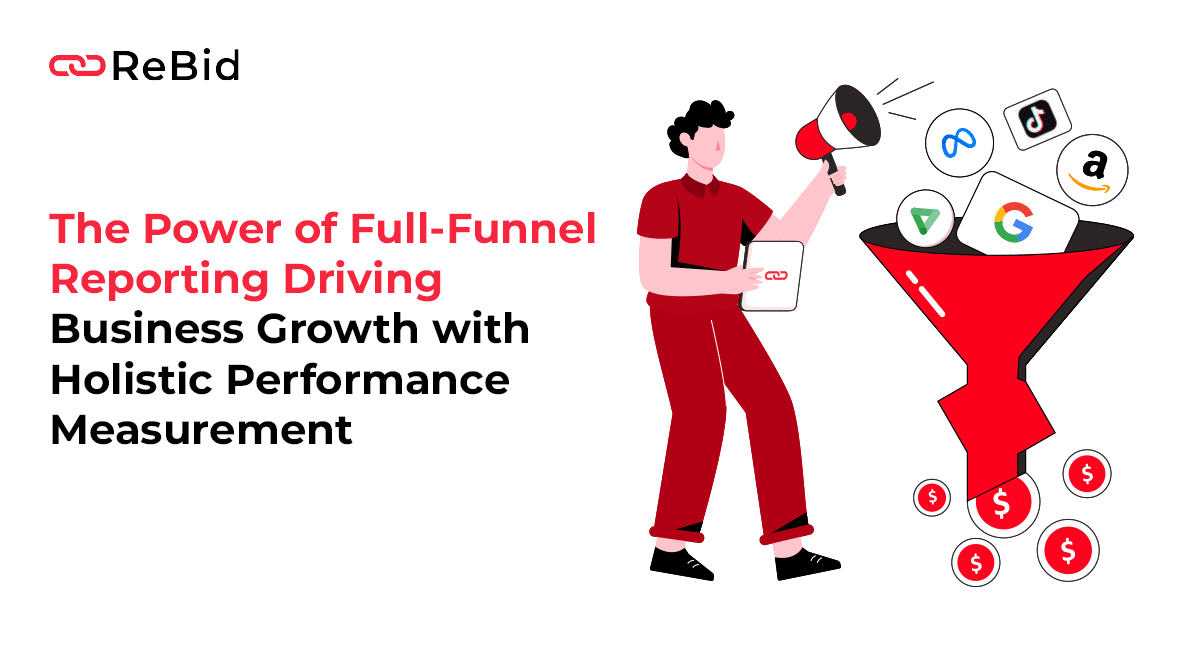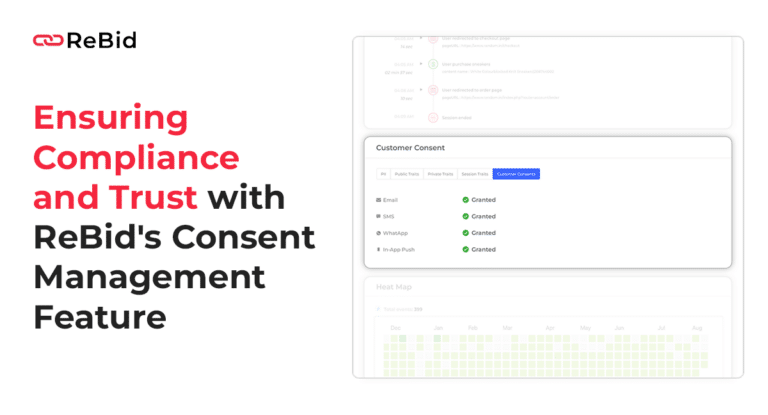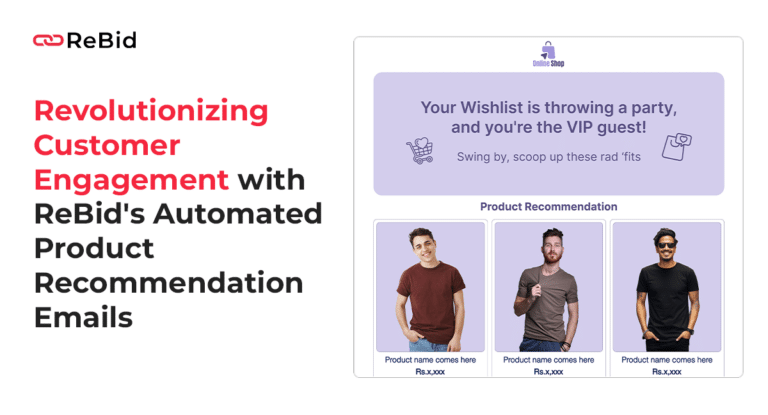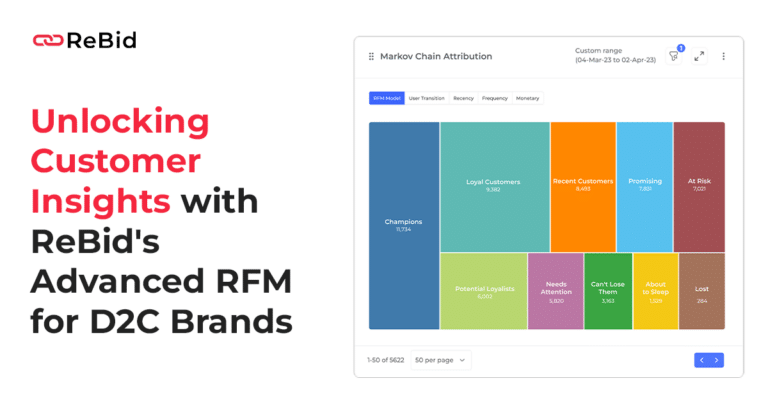As businesses strive to optimize their sales and marketing efforts, taking a holistic approach to measuring performance has become increasingly crucial. Traditional metrics such as clicks and impressions only tell part of the story, and without understanding the full funnel, businesses are left with blind spots that can limit their ability to make data-driven decisions.
Full-funnel reporting provides a comprehensive view of a business’s performance by combining top-funnel marketing data with bottom-funnel company-specific metrics obtained from customer relationship management (CRM) systems. By tracking the entire customer journey, from initial brand awareness to conversion and beyond, businesses gain valuable insights that can inform everything from marketing strategy to sales tactics.
Here are some of the key benefits of Full-Funnel Reporting:
Improving Sales Performance: Full-funnel reporting can also help businesses identify areas where they may be losing potential customers. For example, if a business is seeing a high number of abandoned shopping carts, they may need to adjust their checkout process or offer incentives to encourage customers to complete their purchase. By understanding where customers are dropping off in the funnel, businesses can make targeted improvements that lead to increased sales.
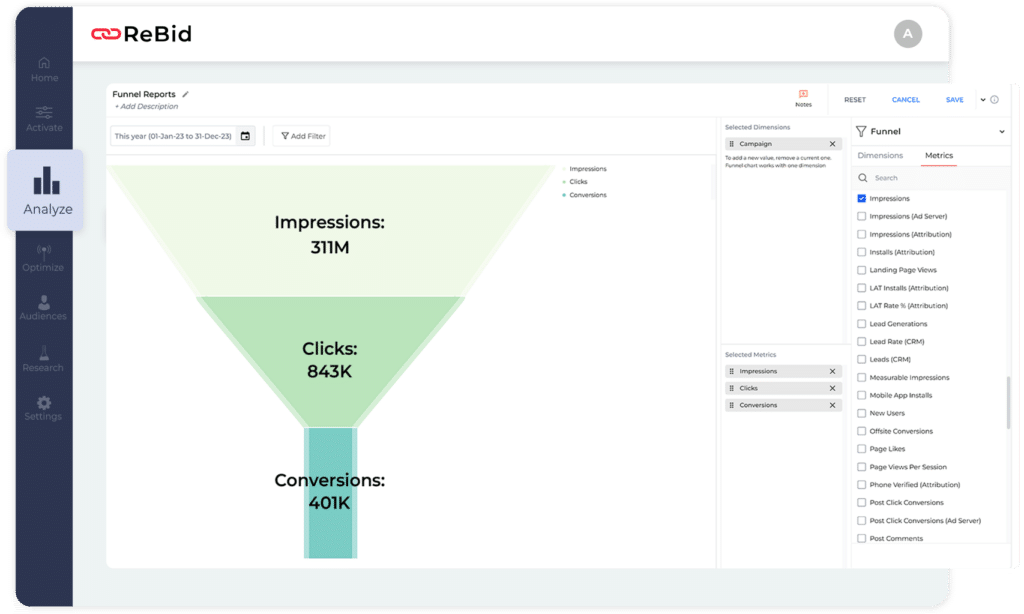
De-risking Marketing Investments: By tracking the full funnel, businesses can identify potential roadblocks and optimize their marketing efforts accordingly. For example, if a business is spending a significant amount of money on social media ads, but those ads aren’t driving conversions, full-funnel reporting can help identify the issue. By analyzing the data, businesses can determine whether the problem lies with the ad itself, the landing page, or the conversion process, and adjust their strategy accordingly.
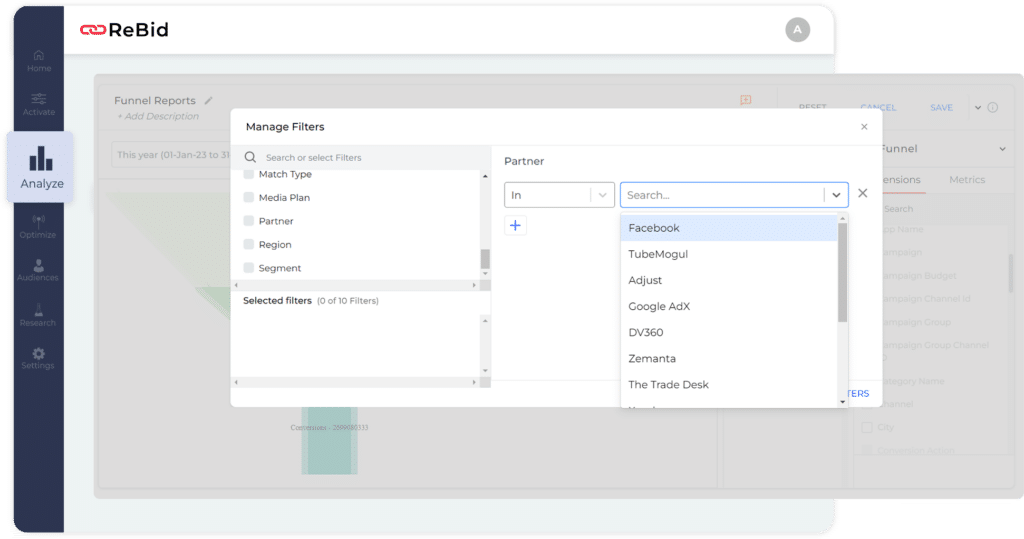
Industry-Specific Insights: Full-funnel reporting can provide valuable insights into industry-specific trends and benchmarks. By comparing their performance to industry standards, businesses can gain a better understanding of how they stack up against their competitors and where they may need to make improvements. For example, if a business in the e-commerce industry is seeing a high cart abandonment rate compared to industry averages, they may need to offer more personalized product recommendations or improve their checkout process to stay competitive.
Bottom-Funnel Metrics from CRM: One of the key advantages of full-funnel reporting is the ability to track bottom-funnel metrics obtained from CRM systems. By analyzing data on leads converted, deal size, and other key performance indicators, businesses can gain a better understanding of the effectiveness of their sales efforts. For example, if a business is seeing a low conversion rate from lead to customer, they may need to adjust their lead qualification process or provide additional training for their sales team. Full-funnel reporting can also help identify what targeting criteria are driving more leads and who should the business focus on more, helping create future lookalike audiences and driving more future sales.

Time and Money Savings: Full-funnel reporting can help businesses save time and money by identifying areas where they may be overspending or underperforming. By analyzing the data, businesses can determine which marketing channels are driving the most conversions and adjust their budget accordingly. Similarly, by identifying areas where they may be losing potential customers, businesses can make targeted improvements that lead to increased ROI.
The impact of having full-funnel reports can be significant for a business’s bottom line. By identifying areas for improvement, businesses can make data-driven decisions that lead to increased conversions, higher customer lifetime value, and overall growth. For example, a business that uses full-funnel reporting to identify targeting criteria that drive more leads can create more effective marketing campaigns and increase its customer base. Similarly, a business that uses full-funnel reporting to optimize its sales process and reduce cart abandonment rates

